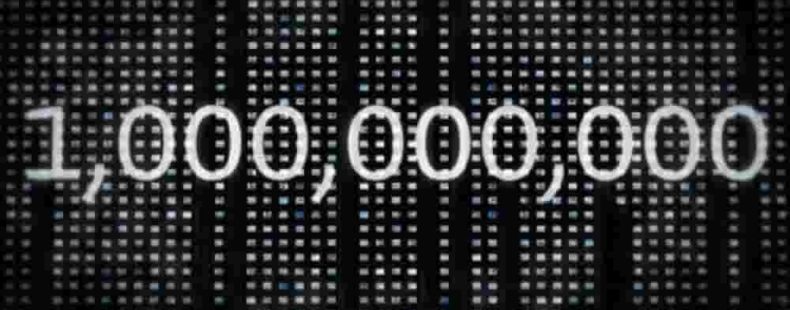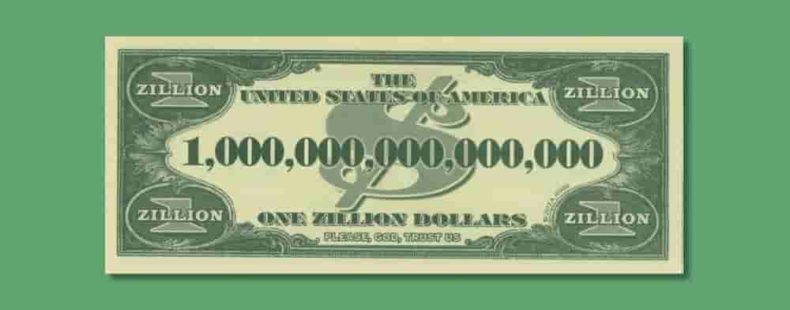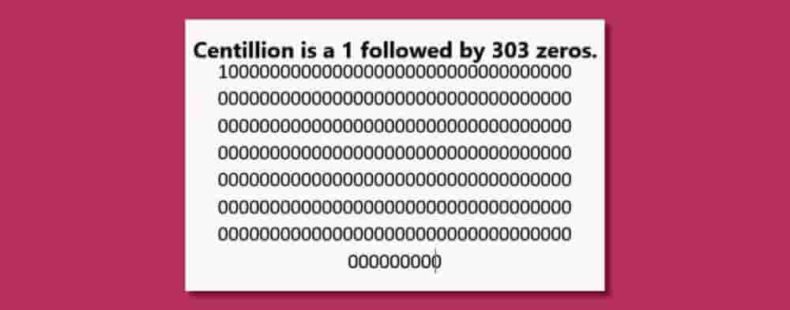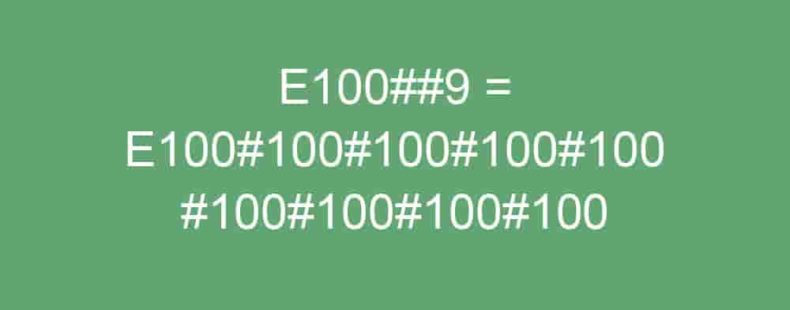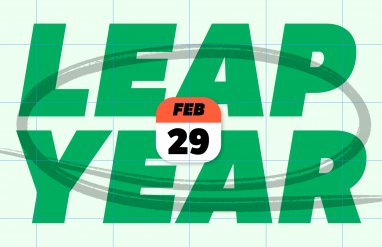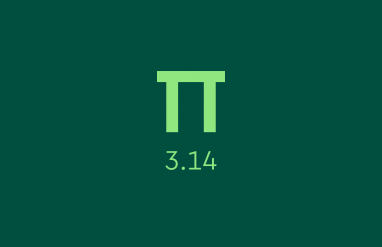infinity
When it comes to large numbers, we’ve got lots to discuss. You might say there’s an infinity of ways to talk about numbers so large they are written in scientific notation or exist only in the imagination.
While terms like million and infinity have been in use for hundreds of years, newer terms such as gargantuul debuted more recently. With this in mind, we thought we’d take a look at some of the vocabulary, definitions, and linguistic trivia surrounding large numbers. Who knows? You might be inspired to invent your own … or at least find math a little more interesting.
Speaking of infinity … in mathematics, infinity refers to “an indefinitely great amount or number” or “a number that is larger than all other numbers.”
The word is derived from the late 14c. Old French infinité, itself derived from the Latin infinitatem meaning “boundlessness” or “endlessness.” Infinity is often represented by the symbol (∞).
John Wallis (1616–1703) is credited with introducing the infinity symbol in 1655. It has been conjectured that Wallis chose the symbol as a variant of a Roman numeral 1,000 (CIƆ, also CƆ).
Philosophers and mathematicians, from Zeno of Elea (c.495–430 BC) to Isaac Newton (1642–1727) and beyond, have studied the nature and concept of infinity. One example of the questions posed by infinity is Zeno’s dichotomy paradox.
The paradox imagines that Homer (legendary author of the Iliad and the Odyssey) wishes to walk to the end of a short path. Before he can get there, he must get halfway there. Before he can get halfway there, he must get a quarter of the way there and so on. To get to the end of the path, Zeno argues, would require Homer to complete an infinite number of tasks (i.e., crossing progressively shorter and shorter distances). The fact that Homer can do so is, therefore, a paradox and quite an achievement.
If you’ve made it to the end of this slide without being confused, that’s quite an achievement, too … on to the next!

